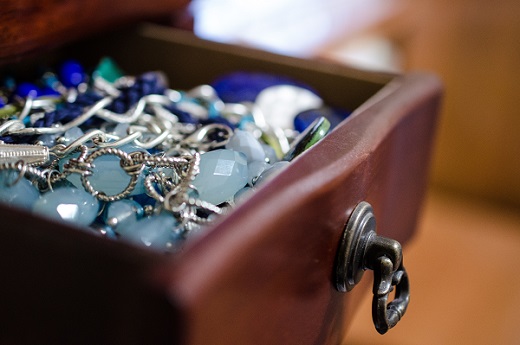Jewelers' Ethical Sourcing Below Par, Report Says
 RAPAPORT... Jewelry and watch companies need to increase efforts toensure their supply chains are free of human-rights abuses, a campaign group cautioned in a report last week."Many jewelers can do more to find out if their gold ordiamonds are tainted by child labor or other human-rights abuses," said JulianeKippenberg, associate child-rights director at Human Rights Watch. "Whensomeone buys a piece of jewelry for their loved one this Valentine's Day, theyshould ask their jeweler what they have done to find out about its origin."The organization, along with 29 other civil-society groupsand trade unions, stressed that jewelry companies were not doing enough toensure they were sourcing responsibly. It's up to jewelers andconsumers to be aware of exactly where and how the jewelry originated, it added.Human Rights Watch examined the sourcingpractices of 13 leading jewelry companies, and reported that none of them receivedits highest ranking of "excellent" for meeting all the criteria for responsiblesourcing. Only Tiffany & Co. received the second-highest ranking, "strong,"meaning that it has taken significant steps toward responsible sourcing.Tiffany can trace all of its gold back to one mine of origin, and conductsregular human-rights assessments with the mine, the report noted.Bulgari, Cartier, Pandora andSignet Jewelers all received a "moderate" rating, having taken some importantsteps toward responsible sourcing, such as conducting mine visits or publishinginformation about their human-rights due-diligence efforts. Meanwhile, Boodles, Chopard, Christ and HarryWinston were all labeled "weak" for having taken few steps toward responsiblesourcing.With no evidence it had taken any steps toward responsiblesourcing, Indian brand Tanishq was ranked "very weak," the report stated. Kalyan,Rolex and TBZ received no ranking as they did not respond to requests to meetwith the organization, and provided no information regarding their sourcingmethods.Many companies rely onsuppliers' assurances of ethical supply, without making further efforts toverify those claims, Human Rights Watch noted. Initiatives such as the Kimberley Process,which places no responsibility on companies, and the Responsible JewelleryCouncil, which needs to strengthen its standards and auditing practices, do notdo enough to provide abuse-free assurance, it added."Too many companies point to their membership in theResponsible Jewellery Council as being all the proof they need of responsiblesourcing," Kippenberg said. "But this is not enough to truly ensure cleansupply chains."Image: m01229/Flickr
RAPAPORT... Jewelry and watch companies need to increase efforts toensure their supply chains are free of human-rights abuses, a campaign group cautioned in a report last week."Many jewelers can do more to find out if their gold ordiamonds are tainted by child labor or other human-rights abuses," said JulianeKippenberg, associate child-rights director at Human Rights Watch. "Whensomeone buys a piece of jewelry for their loved one this Valentine's Day, theyshould ask their jeweler what they have done to find out about its origin."The organization, along with 29 other civil-society groupsand trade unions, stressed that jewelry companies were not doing enough toensure they were sourcing responsibly. It's up to jewelers andconsumers to be aware of exactly where and how the jewelry originated, it added.Human Rights Watch examined the sourcingpractices of 13 leading jewelry companies, and reported that none of them receivedits highest ranking of "excellent" for meeting all the criteria for responsiblesourcing. Only Tiffany & Co. received the second-highest ranking, "strong,"meaning that it has taken significant steps toward responsible sourcing.Tiffany can trace all of its gold back to one mine of origin, and conductsregular human-rights assessments with the mine, the report noted.Bulgari, Cartier, Pandora andSignet Jewelers all received a "moderate" rating, having taken some importantsteps toward responsible sourcing, such as conducting mine visits or publishinginformation about their human-rights due-diligence efforts. Meanwhile, Boodles, Chopard, Christ and HarryWinston were all labeled "weak" for having taken few steps toward responsiblesourcing.With no evidence it had taken any steps toward responsiblesourcing, Indian brand Tanishq was ranked "very weak," the report stated. Kalyan,Rolex and TBZ received no ranking as they did not respond to requests to meetwith the organization, and provided no information regarding their sourcingmethods.Many companies rely onsuppliers' assurances of ethical supply, without making further efforts toverify those claims, Human Rights Watch noted. Initiatives such as the Kimberley Process,which places no responsibility on companies, and the Responsible JewelleryCouncil, which needs to strengthen its standards and auditing practices, do notdo enough to provide abuse-free assurance, it added."Too many companies point to their membership in theResponsible Jewellery Council as being all the proof they need of responsiblesourcing," Kippenberg said. "But this is not enough to truly ensure cleansupply chains."Image: m01229/Flickr